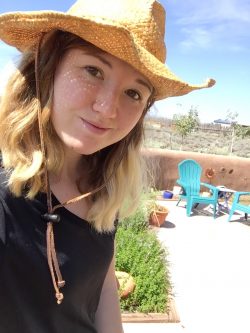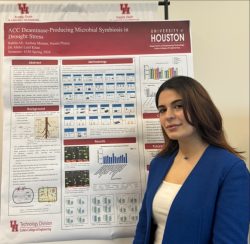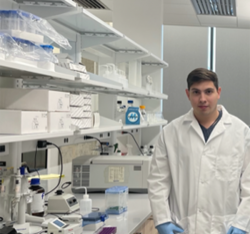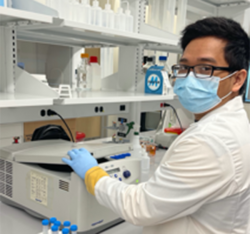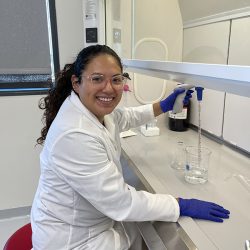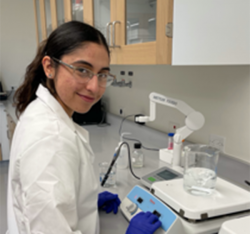People
 |
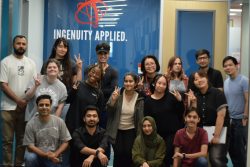 |
| Spring 2025 Lab members | Summer 2025 Lab members |
 |
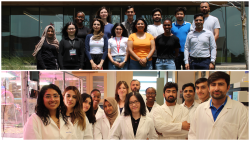 |
| Lab outing 2025 | Spring 2024 Lab members |
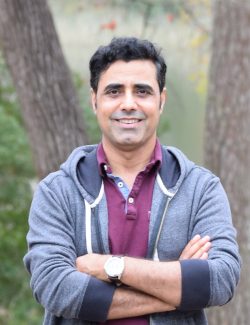 |
Dr. Abdul Latif KhanDr. Khan’s research interest includes plant stress physiology, plant-microbe interaction, and genomics. He focuses on elucidating mechanisms and biosynthetic pathways in plant stress tolerance during climatic changes. He also studies microbiome engineering to improve plant production systems with the least energy and carbon footprints. His lab is establishing a synthetic microbiome for healthy food and increased plant growth. |
 |
Dr. Eunhae KwonDr Eunhae Kwon is highly motivated with expertise in the broad field of plant bioscience and a strong background in signaling between plants and microorganisms (crop physiology). She is proficient in the use of in vitro and in vivo techniques to conduct plant research, including metabolomic and genomic analyses based on microorganisms and crops. She specifically focuses on the melatonin synthesis and pathway in microorganisms and interaction between plant and melatonin-producing microbes under abiotic stress |
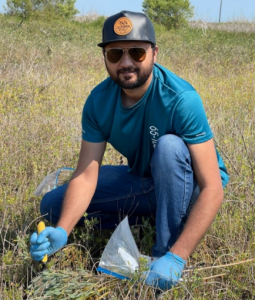 |
Waqar AhmadWaqar joined the lab as Ph.D. student. He is working on exploring plant stress microbiomes. He uses multi-OMIC approaches to understand the role of abiotic stresses, specifically the impact of greenhouse gases on shaping the plant microbiome and biosynthetic pathways. His other interests include isolating, characterization, and identifying salt and temperature-tolerant endophytic microbes and utilizing them as a stress alleviating strategy for growing crop plants in salinity and temperature stresses. |
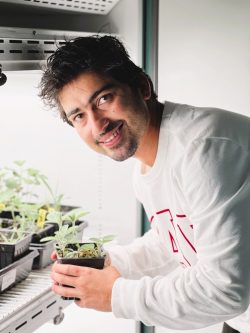 |
Nasir KhanNasir, a recent graduate from Texas Tech University, has joined our lab as a PhD Graduate Research Assistant. He is currently working on microbial seed encapsulation and coating to promote sustainable agriculture. His research focuses on enhancing the physical and physiological properties of seeds to facilitate planting, boost growth indices, enhance yields and quality and mitigate abiotic stresses. Additionally, Nasir is interested in isolating, characterizing, and identifying extremophilic endophytic microbes, with the goal of using these microbes to alleviate stress in crop plants growing under adverse conditions. |
 |
Suhaib AhmedSuhaib Ahmed is thrilled to begin his Ph.D. research focused on the genetic engineering of crops and microbiomes to mitigate climate change. His project aims to enhance the climate resilience of soybean and sorghum using advanced techniques such as CRISPR-Cas9 and gene overexpression. By investigating silicate solubilization, silicon uptake, CO2 sequestration, and ACC deaminase, he plans to boost these crops’ ability to withstand environmental stressors. |
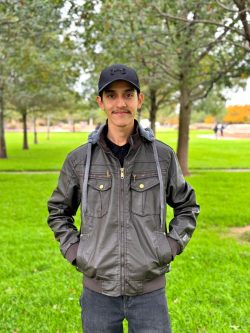 |
Imad AijazImad Aijaz, a master’s student has a keen interest in the intersections of microbiology, and plant growth. He is always seeking new opportunities to contribute to the biotechnology industry and make a positive impact on society. His research include analyzing the impact of exogenous melatonin on different plant species under climatic change conditions. |
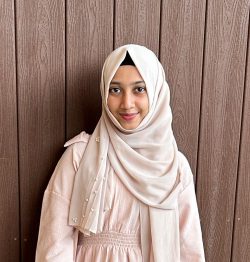 |
Nida FatimaNida Fatima, a master’s student at the University of Houston, is passionate about plant biotechnology and microbiology. She is currently engaged in research on the effectiveness of biofertilizers on various plants to enhance growth and sustainability. |
 |
Lucy OwensLucille Owens is interested in soil microbiomes and their potential to address challenges associated with a changing climate. With experience in environmental lab work, and undergrad research on oyster mushrooms as a sustainable food source in an urban environment, she is eager to explore the utilization of microbes for sustainable crop production to increase global food security. |
 |
Afnan ShinwariAfnan Shinwari, with a Bachelor’s in Plant Sciences, has a strong foundation in medicinal plants and biodiversity. During his BS research, he focused on the medicinal plants of the Himalayas, exploring their wealth, threats, and conservation strategies. Now, as a graduate student at Dr. Khan’s Lab at the University of Houston, he is eager to specialize in climate change biology and genetic engineering. |
 |
Katie KingKatie is a Biotechnology undergraduate at the University of Houston. Her current project is researching microbial consortiums and their role in microplastics degradation. |
 |
Hyugen ChoiHyugen Choi is working on microplastics degrading microbes and their role in eco-enzymes production. |
 |
Elysse NioupinElysse is an undergraduate student. Her research strives to advance the understanding of the benefits of the symbiotic relationship between fungi and soybean plants under both normal and drought conditions. The key objective of her research is to gather empirical evidence that can encourage farmers and agriculturalists to utilize fungi as a tool to enhance crop growth. |
High School Students
 |
Vibhan EmmiVibhan Emmi is currently a high school student who has a deep passion in plant biology. His work in the lab includes analyzing plant-microbe symbolic relationships to identify key species that can aid with the microplastic crisis. Additionally, he is interested in further studying this relationship to harness their power as a source of bioremediation. He is very excited to collaborate with others to help take the next step to helping the world. |
 |
Adam SiddiqiAdam Siddiqi is a high school student at the Academy of Science and Technology. His research strives to address the growing microplastic concern by analyzing microbial growth in response to microplastic concentrations. His findings may suggest possible alternative and natural methods for microplastic degradation through various optimizations. |
Past Alumni and Scholars
|
Lauryn Coffman |
Nadia Uzoma |
Luis Flores |
Nadia Rasheed |
|
Aisha Israr |
Dr. Ali Al-Lawati |
Jessica Yang |
Tisha Haukongo |
Past Undergraduate Students
|
Naomi Pluma |
Rabita Ali |
Mark Kimotho |
Yelinska Alicea |
|
Raneem Mustafa |
Hector Mejia |
Jose R Solis Gonzalez |
Phu Huynh |
|
Marissa C Lopez |
Andrea R Tovar |
Mia Borrego |
Sakina Mandviwala |
